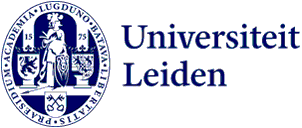
IncLUsion helps asylum seekers study: ‘It has given me self-confidence’
Studying as an asylum seeker without a residence permit. Every year, student initiative IncLUsion enables dozens of asylum seekers to take several courses at Leiden University. ‘Education has given me a lot of support.’
‘The goal of IncLUsion is to support asylum seekers with an academic background,’ says student coordinator Ilse Mulder. ‘Every semester, we try to take on around fifty people who live near Leiden. They can take two bachelor courses while we help them to get to know the university. We explain to them, for example, how uSis works and guide them during the semester. If they receive a residence permit, they are already knowledgeable about the university’s systems and can start studying more quickly.’
Let’s just try
One of the first students to participate in the programme was Verna Tiro. In 2015, she came to the Netherlands from Mexico to pursue a master’s degree in Groningen. ‘I have always known that I wanted to transition, but at the time my culture didn’t even have a word to describe transgender people in a dignified way. I thought that I had to choose between academia and transitioning. It wasn’t until I met a transgender woman in the Netherlands that I thought: if this is possible here, why am I waiting?’
Verna started transitioning, but it proved to be difficult to combine this with studying. In the end, the university suggested stopping the study because the programme was challenging, and it was too demanding to combine it with a transition. A decision with big consequences, as this meant that she could no longer stay in the Netherlands on a student permit. Because it did not feel safe to return to Mexico, she applied for asylum. A long legal procedure and stays in two asylum seekers centres followed. In the one in Amsterdam, she noticed a poster from IncLUsion. ‘I thought: what do I have to lose? Let’s just try.’
‘Education has been my rock’
She registered for the courses International Relations and Cultural studies. They had little to do with her background in biology (science courses were not yet offered, ed.), but they proved to be very useful. ‘During that time nothing was stable, neither my body nor my future in this country. The only stable thing in my life was my brain. Education has really been my rock. During those two courses I have learned how important institutes are when it comes to legal issues.’ That knowledge has helped her during her own procedure. ‘When I changed my name and gender in the Netherlands, I received a formal letter from the Mexican consulate explaining why the changes of name and gender were not as previously reasoned by the IND. This boosted my self-confidence and made me realize that the Dutch System allowed me, in a way, to appeal to the previous decision (an important aspect to achieve justice). It is not that the IND is ‘bad’, it is an institution and is their job to regulate migration, but they cannot know everything about all processes around the world. We also have agency and can provide information to our lawyers during the process.’
Verna at Hello Leiden
Due to the selected cookie settings, we cannot show this video here.
Watch the video on the original website orHelp further
Ilse also notices that IncLUsion helps students find their (legal) way in the Netherlands. ‘IncLUsion focuses on education, but in this way, students of course also integrate in the Netherlands. We also stimulate this by organising social activities. A while ago we held a Dutch night, for example. At first, people were a bit reserved, but at the end of the night, everybody had the courage to chat. It was very nice to see that.’
IncLUsion now has plans to help these students even after they have received a residence permit. ‘At the moment we are trying to strengthen our collaboration with Voorbereidend Jaar Leiden (Preparatory Year Leiden) to smoothen the transition to higher education. This is an initiative of Leiden University and the University of Applied Sciences Leiden that ensures that students meet the requirements to start a full programme in higher education. For example, by working on their level of Dutch. They offer a couple of regular high school classes in Dutch and English, and they support students in making a smooth transition between VJL and any program at Leiden University. In that way, we try to bring them a step closer to actually studying.’
Residence permit on humanitarian grounds
Verna has also been accepted for the preparatory year. She has also applied for a master’s programme, as she finally has a residence permit. ‘After four years navigating the Dutch legal system, and a lot of support, I finally received good news from the IND: a permit on humanitarian grounds.’ Nevertheless, she may have to postpone her study plans for a year. A few weeks ago, she was also told that she is on a waiting list for two major operations. ‘For now, I will concentrate on my integration and improving my Dutch, because what I practise with my boyfriend is not formal Dutch. I am very grateful for the existence of a programme like incLUsion'.
Two times a year, asylum seekers with an academic background can apply to take bachelor courses at Leiden University. IncLUsion judges their applications based on motivation, previous learning experience and level of English. When the admitted students complete their taken courses, they receive a certificate.
